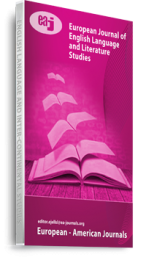The paper is a critical analysis of Rawi Hage’s novels, De Niros’s Game, Cockroach and Carnival. It explores Hage’s utilization of the mental and physical shapeshifting, metamorphosis and therianthropy as principal constituents of the literature of the fantastic. It posits that Hage employs these tropes symbolically to discuss oppression and repression, empowerment and control, human dilemma and trial of will, and the correction of an unsatisfying reality. The study highlights Hage’s socio-political vision, existential propositions and ideated nostrums for the dehumanizing experiences of inequality, poverty and discrimination. Hage focuses on the individual search for justice and identity. His novels emphasize the realities that instigate the shape-shifting process as well as the individual voice of resistance. The article proposes that Hage’s marginalized peripatetics, traumatized by civil wars, exile, or bigoted nationalism, resort to metamorphic characters, borderline ambiguity, and alternative identities as therapeutic defence mechanisms, to achieve liberation, empowerment and individualism.
Keywords: Canadian Literature; Shape-Shifting; Rawi Hage; War; Exile

